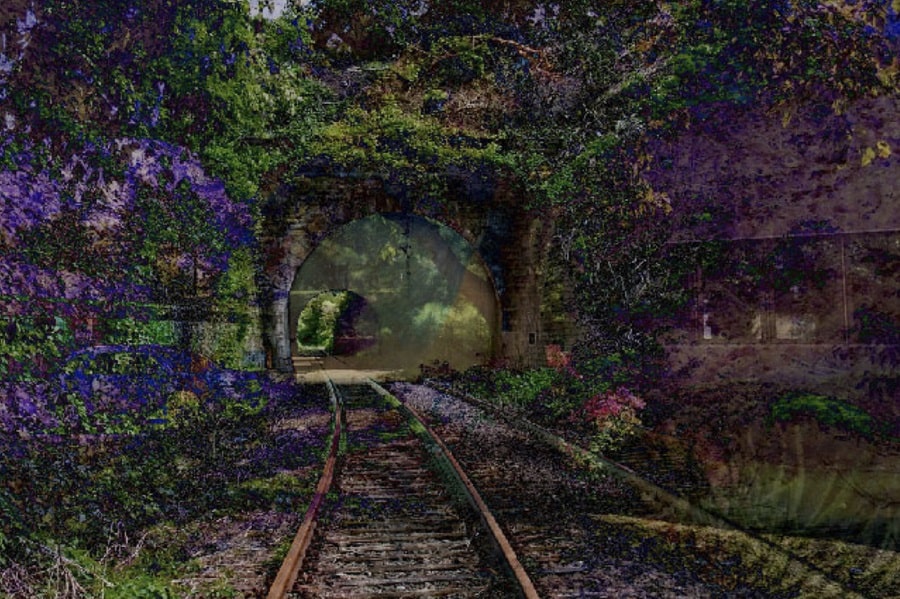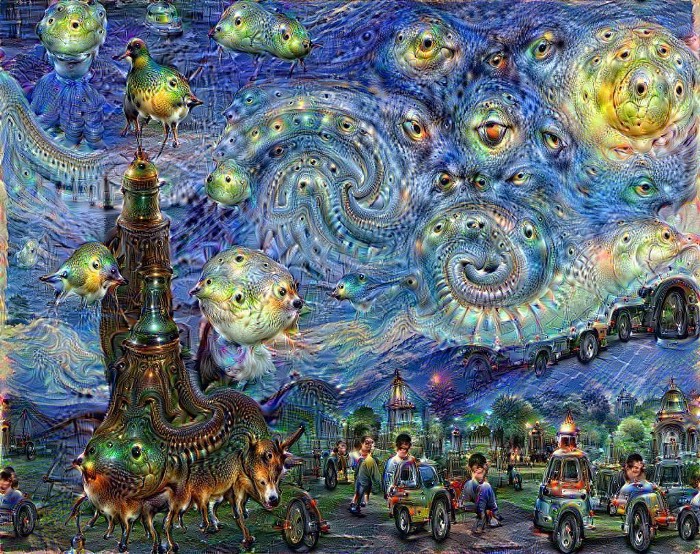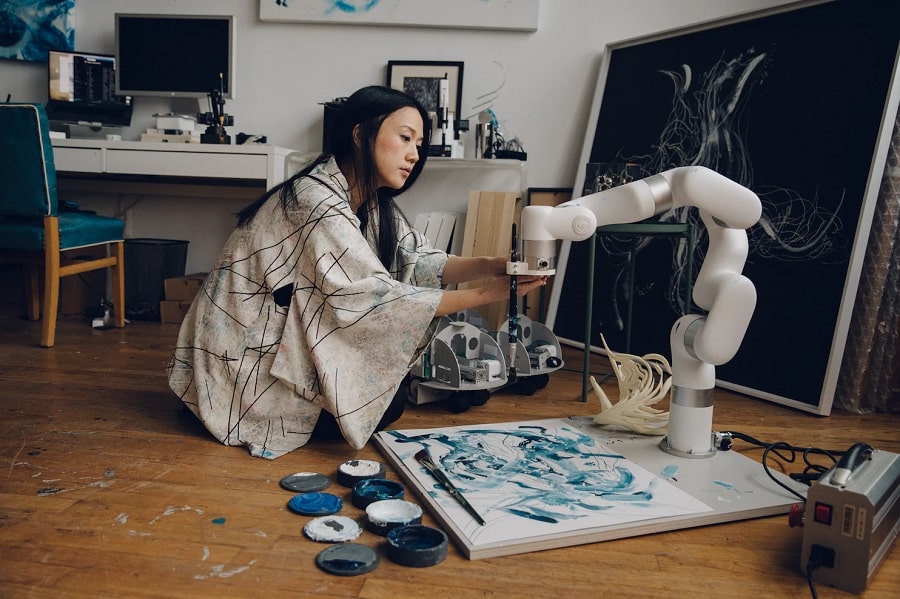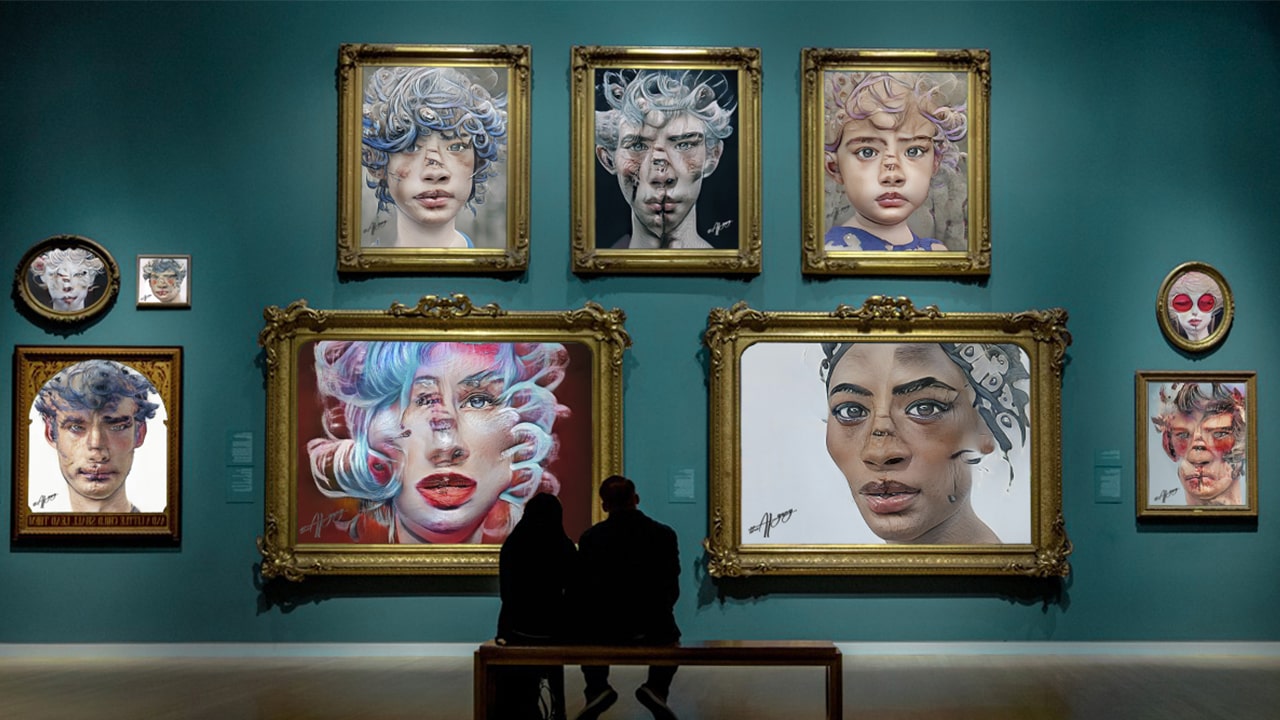L’US Copyright Office rejected a request for registration of copyright for a work of art made by aartificial intelligence (AI). The American commission decided that the “human paternity / maternity”Is a fundamental requirement for copyright to protect a work. And art created by a computer does not satisfy that principle, according to the commission. Which answers a question of law, which however implies an even bigger question: artificial intelligence can really create art?
Art created by artificial intelligence cannot be protected by copyright
The ruling of the United States Copyright Office comes to settle a dispute that arose in 2019. Steven Thaler had presented a picture made using an artificial intelligence algorithm called Creativity Machine. The three-person commission had to discuss whether copyright applied to a product created entirely by a computer. Which is a legal way to ask: can that created by AI be art?
The work in question is called “A Recent Entrance to Paradise“, Part of a series of works created by the algorithm that wants to simulate a”near-death experience“. In short, what happens when a computer is asked to be inspired by having experienced the risk of dying, one of the most human and artistic experiences we can imagine. The result is this.

Among the features that make this series of paintings interesting, there is precisely the fact that the AI paints digitally with very little influence on the human side. An interesting research element for AI but which prevents the assignment of copyright according to the commission.
Is that created by artificial intelligence really art (and protected by copyright)?
Kipling in his “The Conundrum of the Workshops” he tells of the first legendary human graphic work, when Adam painted Eve’s face with a stick in the mud. And the Devil whispered in his ear: “It’s splendid, but is it really art?”. The English author found interesting the obsession we have in defining what is artistic and what is not. But he would never have dreamed of arguing about artistic merits of a computer.
According to the US Copyright Office commission, the “Connection between the human mind and creative expression” it is vital for the granting of copyright. Furthermore, he points out that although there are no explicit references to the artistic creation of machines in the law, the American courts have repeatedly excerpted claims that a work of art was produced by animals or by divine intervention.
 Dream Starry Night, the work of Magenta, Google AI
Dream Starry Night, the work of Magenta, Google AI
For example in 1997 a judge’s decision had asserted that a book of suppository inspiration divine it could only be covered by copyright if human intervention in its conception was declared. More recently, a court had explained that one ape he could not sue for copyright infringement, despite his selfie being copied several times.
Human involvement is essential
What the United States Copyright Office seems to emphasize therefore is that human involvement in the conception of an artistic product remains essential. But that doesn’t mean that any kind of art created using computers cannot be protected by copyright.
Thaler pointed out that the work presented had no human input and his crusade was unsuccessful (as was his attempt to get robots to file patents). In short, his battle is to recognize one legal status to artificial intelligencesie the American courts have rejected his attempts to do so.
But artificial intelligence is becoming more and more one instrument in the repertoire of artists. If a painter used a mechanical arm to realize his artistic vision, the result could be different. The copyright would go to the person, but the intervention of the machine would still be evident. The same goes for a 3D printed sculpture or music performed with specific algorithms, but which starts from a human intuition.
 Artist Sougwen Chung uses AI as a creative tool (Credit: Washington Post)
Artist Sougwen Chung uses AI as a creative tool (Credit: Washington Post)
The question about the artistic potential of artificial intelligence does not have an easy solution and we are sure that philosophers and thinkers from all over the world will express themselves on the subject in the future. But in the meantime, one thing is certain: copyright is only due when the author is human.
However, if looking at a work arouses emotion, does it change something if a computer thought about creating it?















Leave a Reply
View Comments